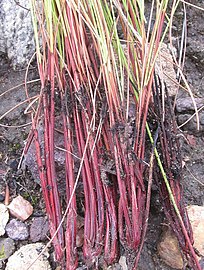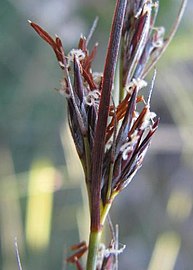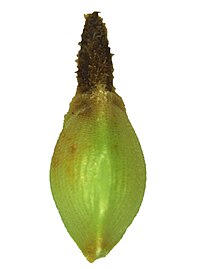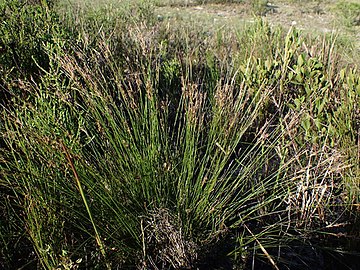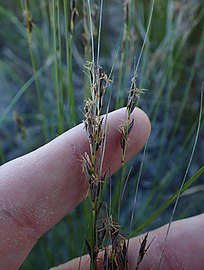
Schoenus quartziticus is a species of sedge endemic to the Agulhas Plain region of the Western Cape Province in southern South Africa.

Schoenus arenicola is a species of sedge endemic to the south-west coast of South Africa.
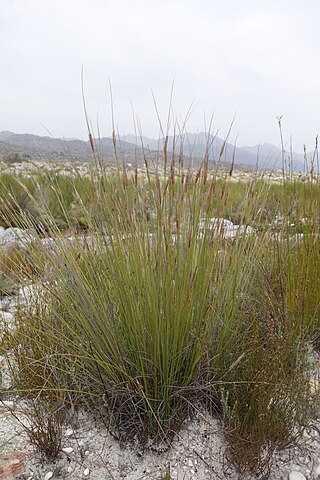
Schoenus pictus is a species of sedge endemic to the Western Cape Province of South Africa. It is a species usually found on mountain slopes.

Schoenus filiculmis is a species of sedge endemic to the western mountains of the Western Cape and Northern Cape Provinces of South Africa.

Schoenus exilis is a species of sedge endemic to the western areas of the Western Cape Province of South Africa.
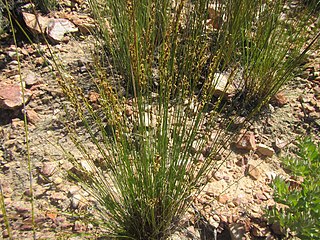
Schoenus submarginalis is a species of sedge endemic to the mountains of the Western and Eastern Cape provinces of South Africa.

Schoenus limosus is a species of sedge endemic to the KwaZulu-Natal and Eastern Cape provinces of South Africa. It is predominantly a species of wet grasslands, which explains its common name.
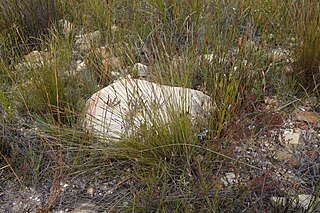
Schoenus bracteosus is a species of sedge endemic to the mountains of southern South Africa.
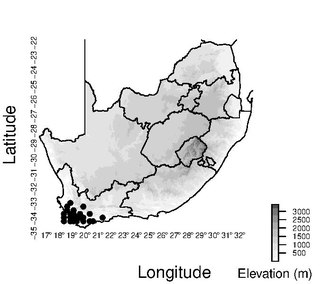
Schoenus crassus is a species of sedge endemic to south-western South Africa.
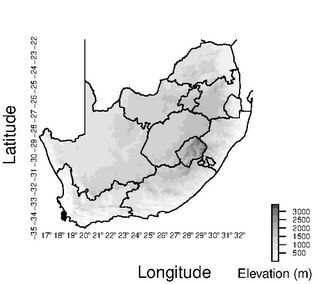
Schoenus riparius is a species of sedge endemic to the Cape Peninsula of South Africa.
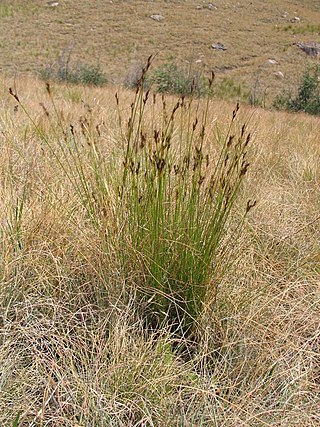
Schoenus galpinii is a species of sedge endemic to eastern southern Africa.
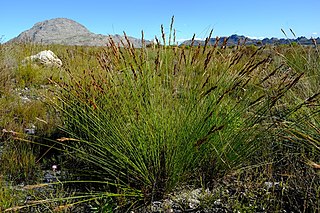
Schoenus cuspidatus is a species of sedge endemic to the Cape region of South Africa where it is found in the provinces of Western Cape and Eastern Cape.
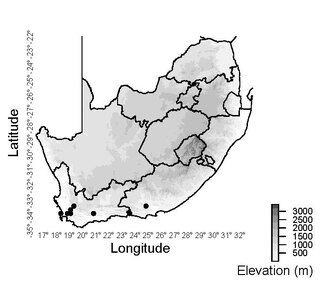
Schoenus adnatus is a species of sedge endemic to mountainous locations in southern regions of South Africa.

Schoenus complanatus is a species of sedge endemic to the western mountains of the Western Cape Province of South Africa.
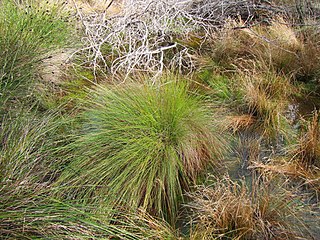
Schoenus gracillimus is a species of sedge endemic to the Western Cape Province of South Africa.
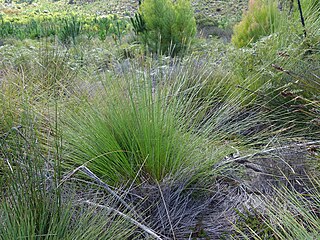
Schoenus neovillosus is a species of sedge endemic to the south-western mountains of the Western Cape Province of South Africa.

Schoenus australis is a species of sedge endemic to locations near the southern coast of South Africa.
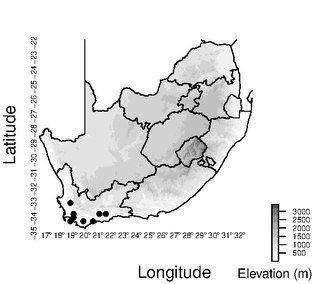
Schoenus brunnescens is a species of sedge endemic to the Western Cape Province of South Africa.

Schoenus inconspicuus is a species of sedge endemic to south-western areas of the Western Cape Province of South Africa.

Schoenus crinitus is a species of sedge endemic to the Worcester region of the Western Cape Province of South Africa.


